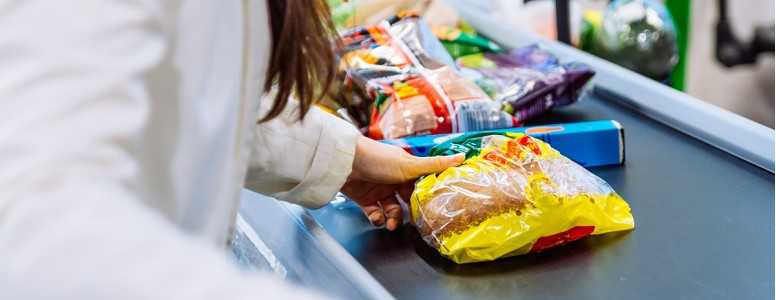Moving sweets and chocolates away from supermarket checkouts reduces purchases by 76%, according to new research.
A government-funded study has looked at how buying habits have changed in the shops that have moved the position of sugary confectionery in the last few years.
Previous research has shown that stocking unhealthy treats by checkouts or at the end of aisles boosts sales significantly.
The government has been under pressure to drive down rates of childhood obesity and type 2 diabetes, and calls to improve the UK’s health have led to large supermarket giants agreeing to move products away from temptation.
Researchers from Cambridge, Stirling and Newcastle universities say there has been a shift in purchases since the positioning of unhealthy foods has changed.
They used data taken from 7,500 shoppers, looking at food patterns from purchases bought on the go during 2016-17.
Dr Katrine Ejlerskov, the study’s first author, said: “Our findings suggest that by removing sweets and crisps from the checkout, supermarkets can have a positive influence on the types of purchases their shoppers make.
“This would be a relatively simple intervention with the potential to encourage healthier eating. Many of these purchases may have been impulse buys, so if the shopper doesn’t pick up a chocolate bar at the till, it may be one less chocolate bar that they consume.”
Dr Jean Adams, a senior lecturer in dietary public health research at the University of Cambridge, said: “It may seem obvious that removing unhealthy food options from the checkout would reduce the amount that people buy, but it is evidence such as this that helps build the case for government interventions to improve unhealthy behaviours.”
The findings have been published in the Plos Medicine journal.
What's new on the forum? ⭐️
Get our free newsletters
Stay up to date with the latest news, research and breakthroughs.




